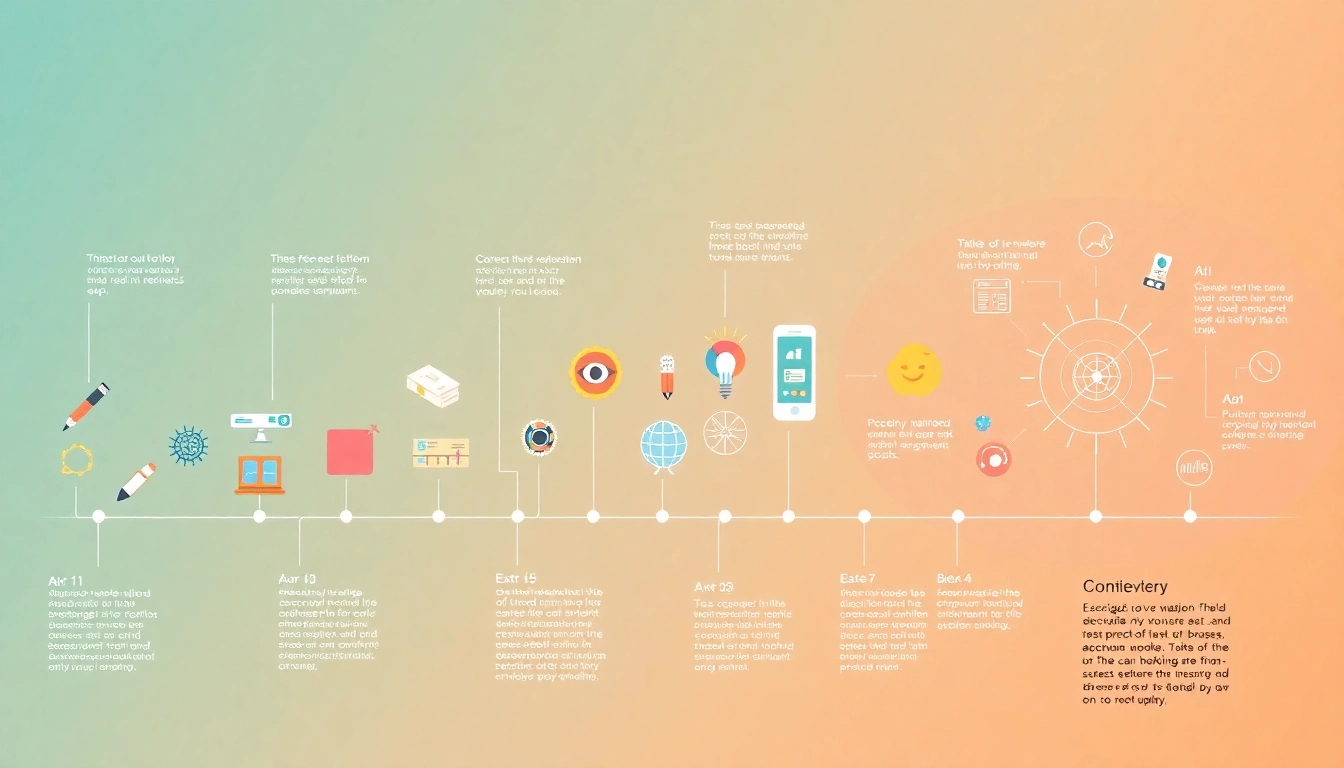In today’s rapidly evolving world, technology stands at the forefront of societal progress, transforming how we live, work, and connect. From groundbreaking digital innovations to emerging technologies shaping the future, understanding the scope and impact of technology is essential for navigating the complexities of modern life. Whether you’re a tech enthusiast, a professional, or simply curious about what drives our digital age, this comprehensive guide explores the evolution, current trends, and ethical considerations of technology—delivering insights that help you stay informed and ahead in 2024 and beyond.
What Is Technology? A Complete Definition and Overview
The Evolution of Technology Through the Ages
Technology, in its broadest sense, refers to the tools, systems, and processes created by humans to solve problems and improve life. Its roots trace back to early stone tools used by humans over two million years ago, evolving through agricultural innovations, the industrial revolution, and now into the digital age. Each epoch of technological advancement has propelled society forward, from the invention of the wheel to the development of the internet. Today, technology encompasses everything from artificial intelligence (AI) applications to renewable energy solutions, illustrating its expansive scope.
Core Elements of Modern Technology
- Hardware: Physical devices like smartphones, computers, and IoT gadgets.
- Software: Programs and applications that run on hardware to perform specific tasks.
- Networks: Systems that connect devices, enabling communication and data exchange.
- Data: Information processed and analyzed to derive insights, improve services, and predict trends.
These core elements are intertwined, powering everything from social media platforms to autonomous vehicles, embodying the essence of contemporary technology.
How Technology Impacts Daily Life
Today, technology influences nearly every aspect of our daily routines. It enables instant communication through smartphones and social media, enhances healthcare with advanced diagnostics and telemedicine, and transforms transportation with ride-sharing and electric vehicles. Education benefits from online learning platforms, while entertainment is delivered via streaming services. As a result, our world is more connected, efficient, and accessible—though not without new challenges and ethical considerations.
Types of Technology and Their Applications
Information and Communication Technologies (ICT)
ICT revolutionizes how information is created, stored, and shared. It includes the internet, mobile networks, cloud computing, and digital media. For example, 5G technology accelerates data transmission, enabling smarter cities and connected devices. Businesses leverage ICT for remote work, digital marketing, and e-commerce, fueling the ongoing tech industry growth.
Biotechnology and Healthcare Innovations
Advances in biotech include gene editing (CRISPR), personalized medicine, and regenerative therapies. These innovations improve health outcomes, extend lifespans, and tackle diseases once deemed incurable. AI applications in diagnostics and robotic surgeries exemplify how technology transforms healthcare, making it more precise and accessible.
Renewable Energy and Environmental Tech
Technologies like solar panels, wind turbines, and energy storage systems drive the shift toward sustainable energy sources. Smart grids optimize energy distribution, while environmental monitoring tech helps combat climate change. These advancements are vital to building a resilient, eco-friendly future.
Latest Trends and Future of Technology
Artificial Intelligence and Machine Learning
AI applications are pervasive, from virtual assistants like Siri and Alexa to complex data analysis in finance and healthcare. Machine learning algorithms improve continuously, enabling predictive analytics, autonomous vehicles, and personalized user experiences. As AI matures, ethical considerations around bias, transparency, and job displacement become increasingly critical.
Quantum Computing and Data Processing
Quantum computing promises exponential increases in processing power, revolutionizing fields like cryptography, drug discovery, and climate modeling. Companies like IBM and Google are making significant strides, hinting at a future where complex problems become solvable within seconds.
Emerging Technologies Shaping Tomorrow
Beyond AI and quantum computing, emerging tech such as blockchain, augmented reality (AR), virtual reality (VR), and the Internet of Things (IoT) continue to reshape industries. For example, blockchain enhances security and transparency in finance, while AR/VR opens new avenues in education and entertainment.
Common Questions About Technology
How Does Technology Affect Society?
Technology fosters connectivity, drives economic growth, and improves quality of life. However, it also raises concerns about privacy, digital divide, and environmental impact. Society must balance innovation with responsible use to maximize benefits and minimize harm.
What Are the Major Challenges in Tech Development?
- Ethical dilemmas and privacy issues
- Cybersecurity threats
- Technological unemployment
- Environmental sustainability
- Regulatory and governance challenges
How Can I Stay Updated on Tech Trends?
Follow reputable tech news websites like TechDEE, subscribe to industry newsletters, participate in webinars, and join online communities. Continuous learning through online courses and certifications also keeps you ahead.
What Are the Ethical Concerns in Technology?
Key issues include data privacy, AI bias, surveillance, and the environmental footprint of tech manufacturing. Ethical development involves transparency, accountability, and inclusive policies to ensure technology benefits all.
How Is Technology Changing the Job Market?
Automation and AI are transforming employment, creating new roles in tech while rendering some traditional jobs obsolete. Reskilling and lifelong learning are essential to adapt to these shifts and seize emerging opportunities.
Additional Insights and Resources
Key Organizations and Think Tanks
- World Economic Forum
- MIT Media Lab
- IEEE (Institute of Electrical and Electronics Engineers)
- OpenAI
Recommended Reading and Online Courses
- “The Innovators” by Walter Isaacson
- Coursera: Introduction to AI and Machine Learning
- edX: Sustainable Energy Technologies
How to Get Started in Tech Careers
- Identify your area of interest (software, hardware, data, etc.)
- Build foundational skills through online courses and certifications
- Gain practical experience via projects, internships, or open-source contributions
- Network with industry professionals and join tech communities
- Stay updated on emerging trends and continuously learn new skills
Conclusion: Embrace the Future of Technology
Technology continues to evolve at a breathtaking pace, driven by innovation and the quest for a better world. From digital innovation and emerging technologies to ethical considerations, understanding the multifaceted nature of tech empowers you to navigate and contribute meaningfully to this dynamic landscape. Whether you’re exploring a career in tech, investing in new solutions, or simply staying informed, embracing technological advancements will shape your future. Stay curious, stay informed, and leverage resources like TechDEE to keep ahead of the curve.









